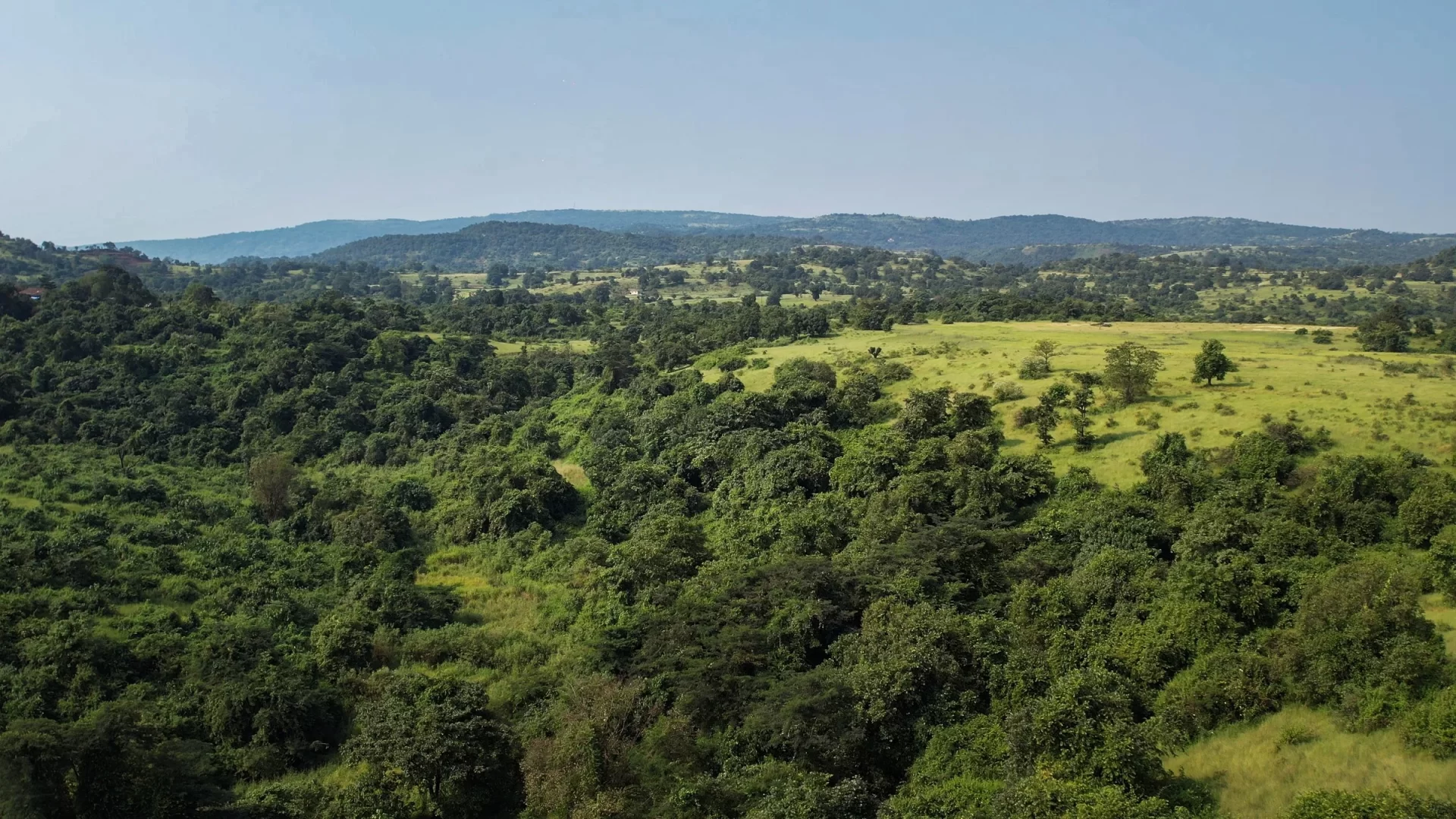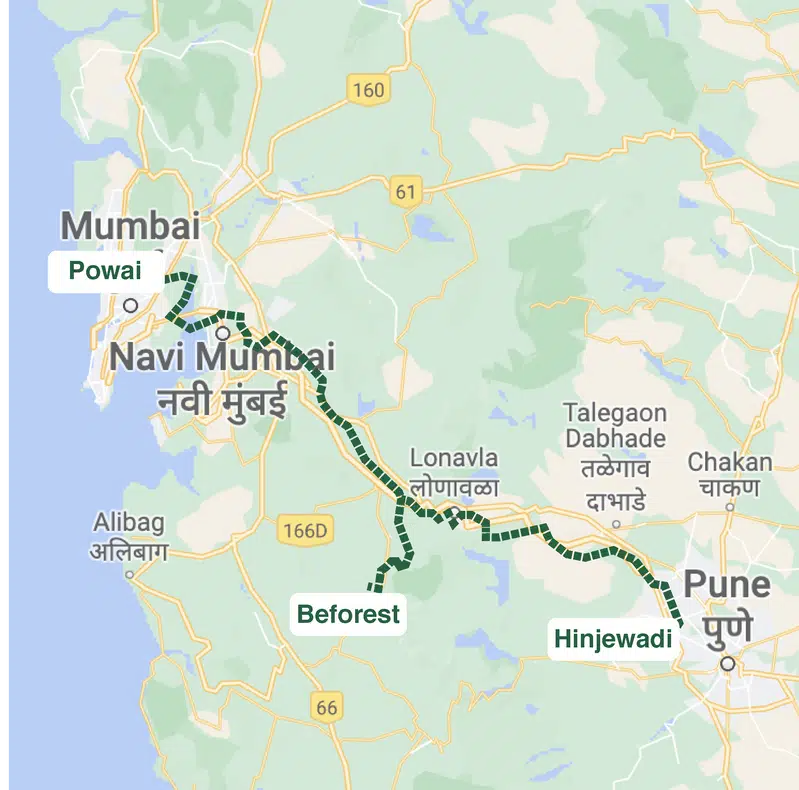
Reimagining Sustainability In Mumbai’s Backyard
Nestled equidistant from the bustling hubs of Mumbai and Pune, The Mumbai Collective lies on a breathtaking tabletop landscape—a retreat shaped by nature and guided by a vision of true sustainability. This is more than a place to live; it’s a commitment to a lifestyle that respects and nurtures the land, creating a sanctuary that redefines community living.
Our Purpose
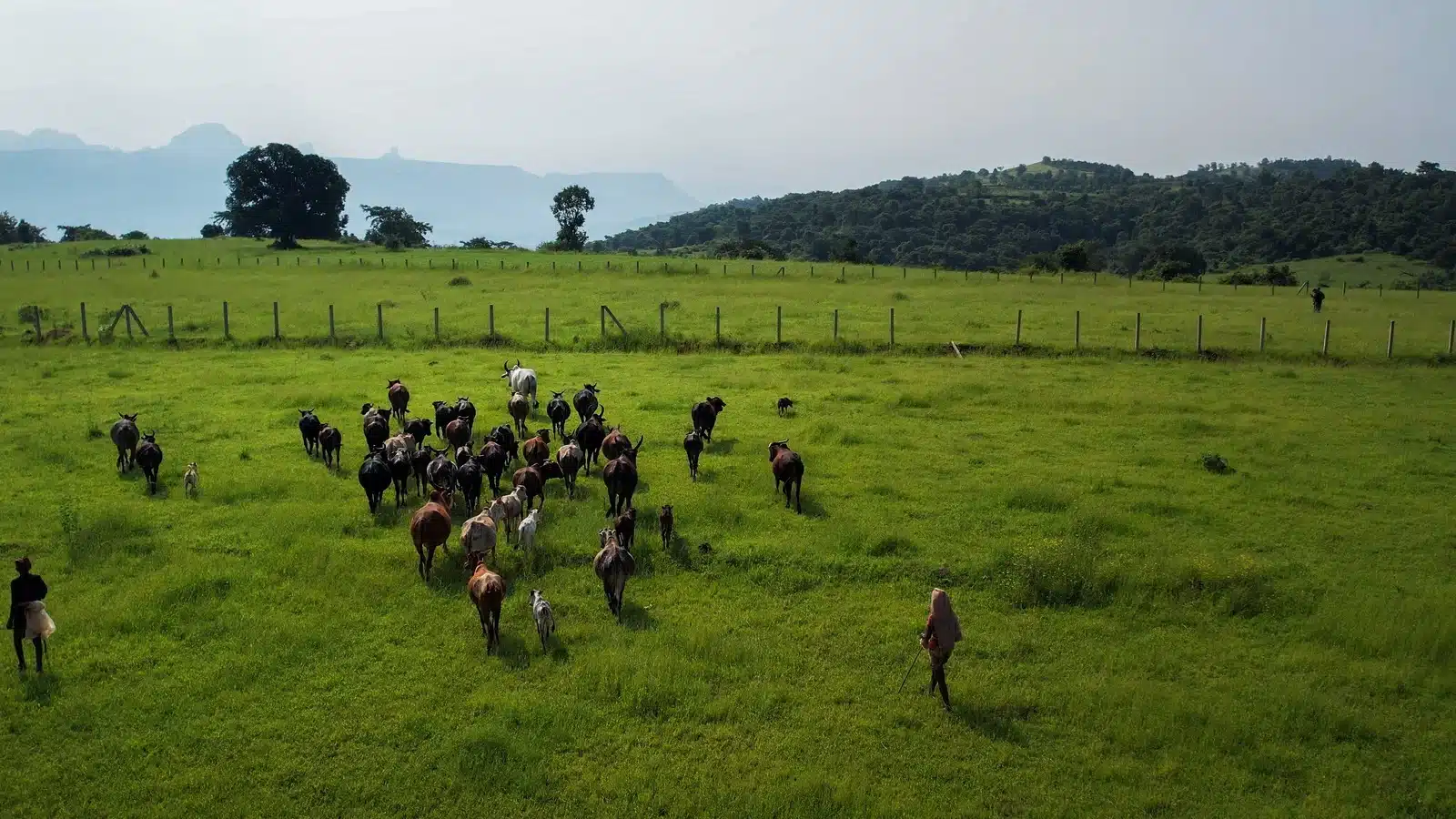
Cultivating a Legacy of Sustainability
At The Mumbai Collective, our purpose transcends real estate; it’s about cultivating a thriving ecosystem that aligns human needs with nature’s wisdom. Every aspect of this 100-acre sanctuary reflects our dedication to a simple, profound goal: regeneration. Our approach is inspired by the Four Returns—financial, natural, social, and inspirational—which guide each decision and weave resilience into every acre.
Our Approach
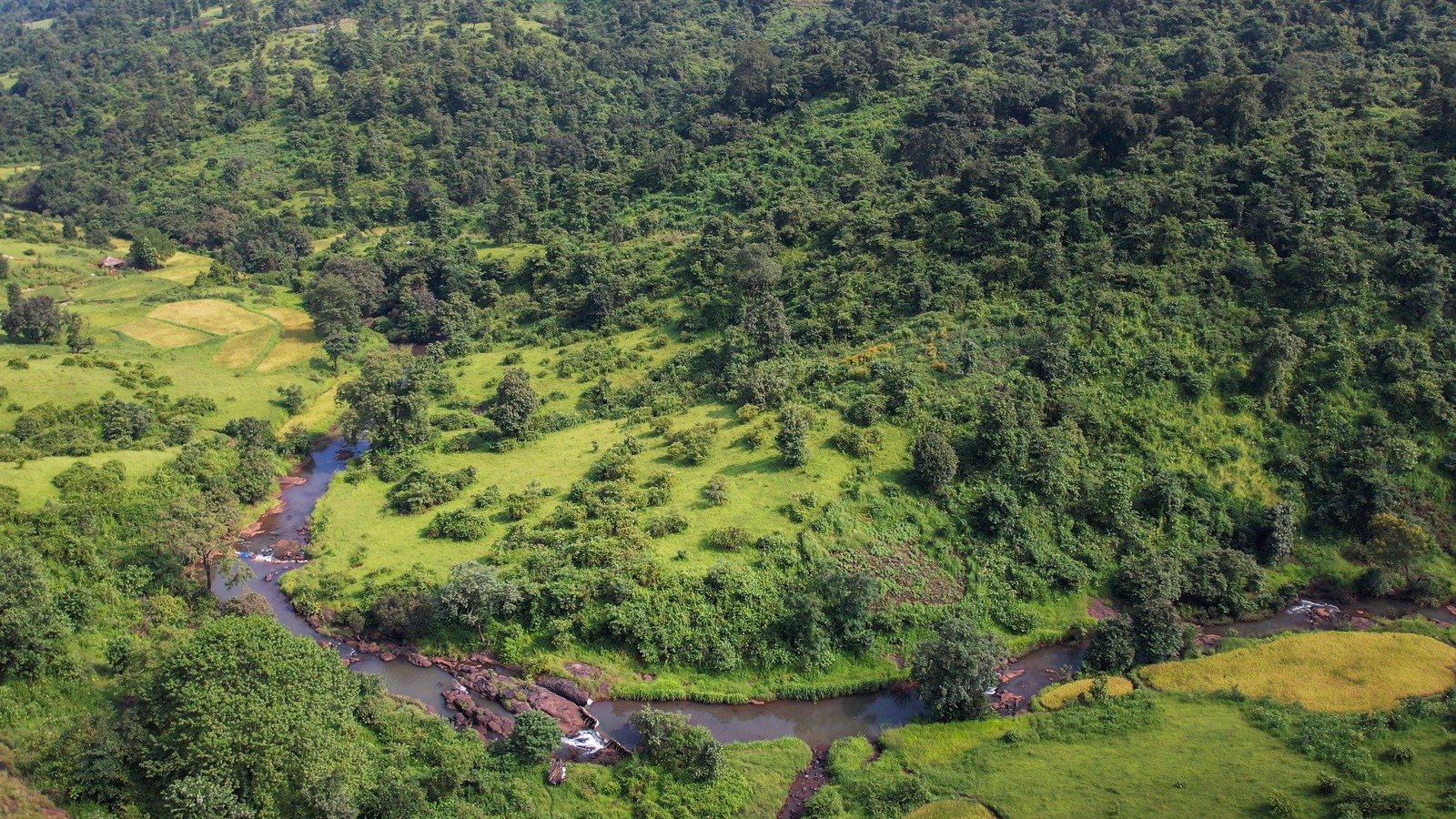
Embracing the land’s wisdom
The Mumbai Collective is designed with respect for the land's unique contours, hydrology, and biodiversity. Here, each decision supports the natural rhythm and capacity of the landscape, bringing together principles of permaculture— Earth Care, People Care, and Fair Share. With this approach, we go beyond conserving; we regenerate. We envision a landscape that supports life in all its forms, where food forests flourish, water cycles are restored, and biodiversity thrives.
Crafted For Self-Sufficiency
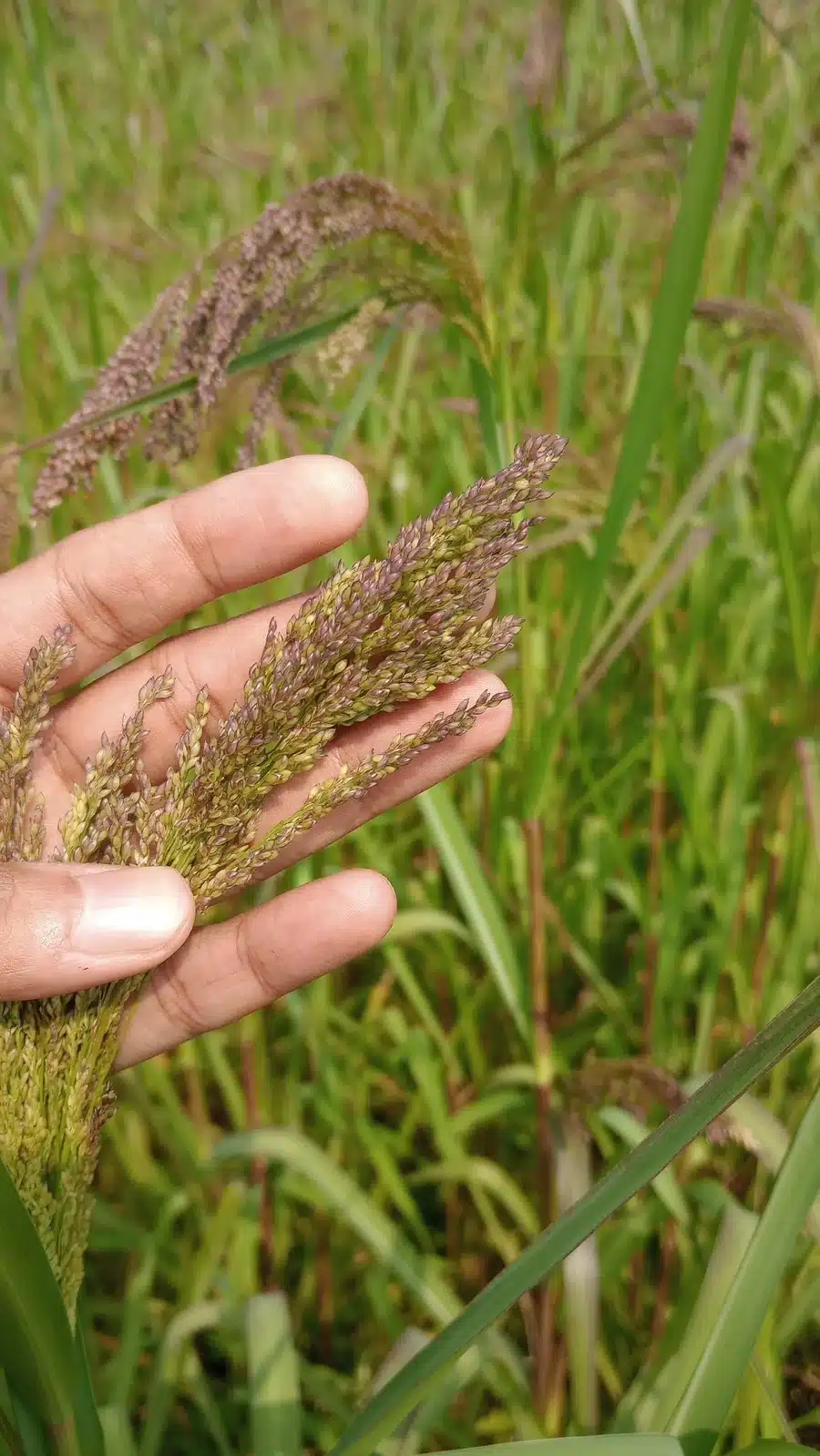
Food Security
Imagine living among lush food forests, where biodiversity is a natural ally, pest control occurs naturally, and food is abundant for humans and wildlife alike. Inspired by forest ecosystems, our food forests are designed with polyculture planting, bio-fencing, and a selection of native species that sustain and nurture the land. Residents here enjoy the fruits of a self-sustaining landscape that connects daily life with the wisdom of nature.
Water Security
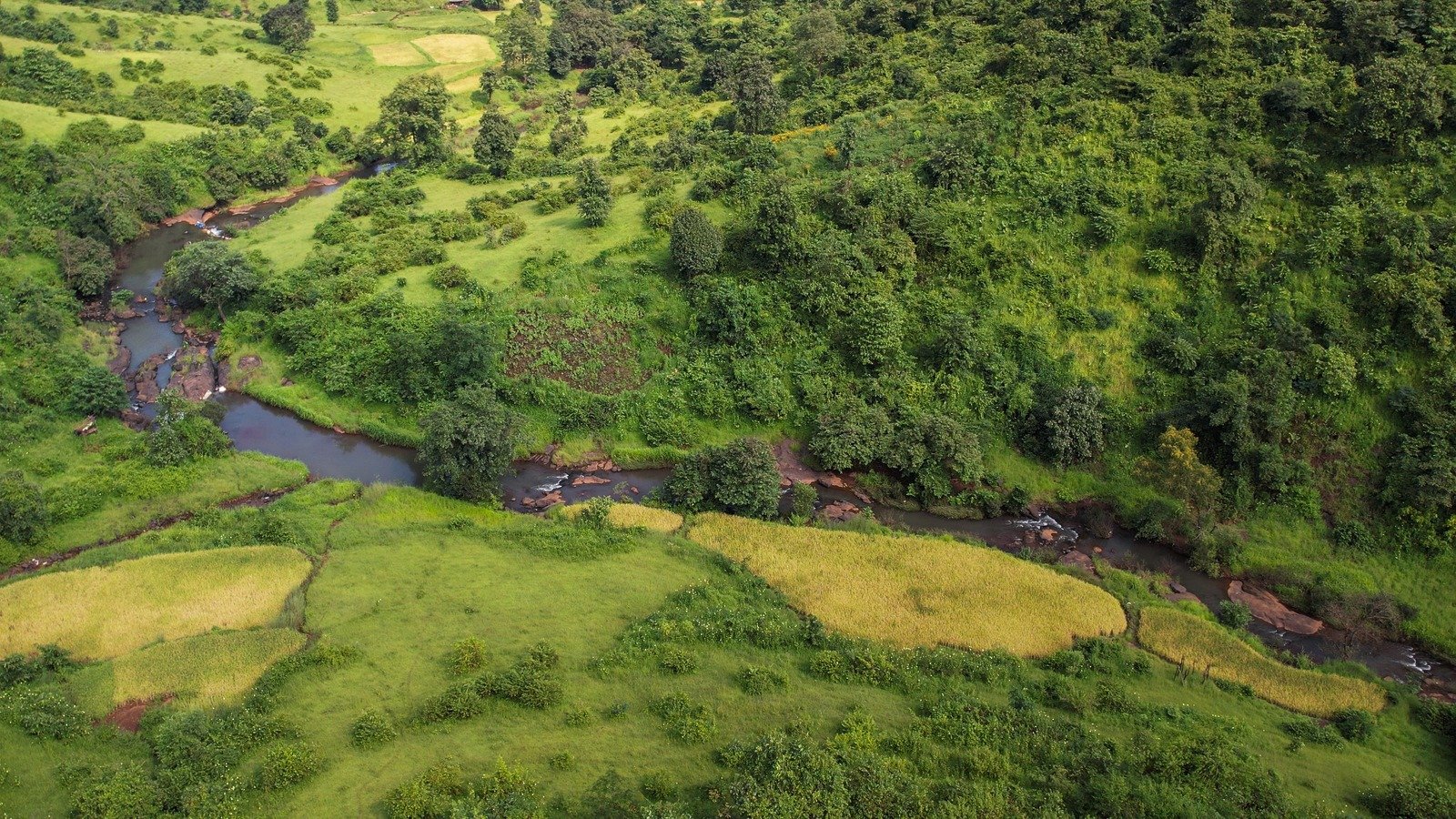
Water is the essence of life, and at The Mumbai Collective, we honor it with innovative management that allows “running water to walk and walking water to crawl.” Using swales, check dams, and sink pits, we slow down water, creating microclimates and fertile soil, preventing erosion, and revitalizing water cycles. Monsoons are transformed from challenges to opportunities, nourishing both the land and the community.
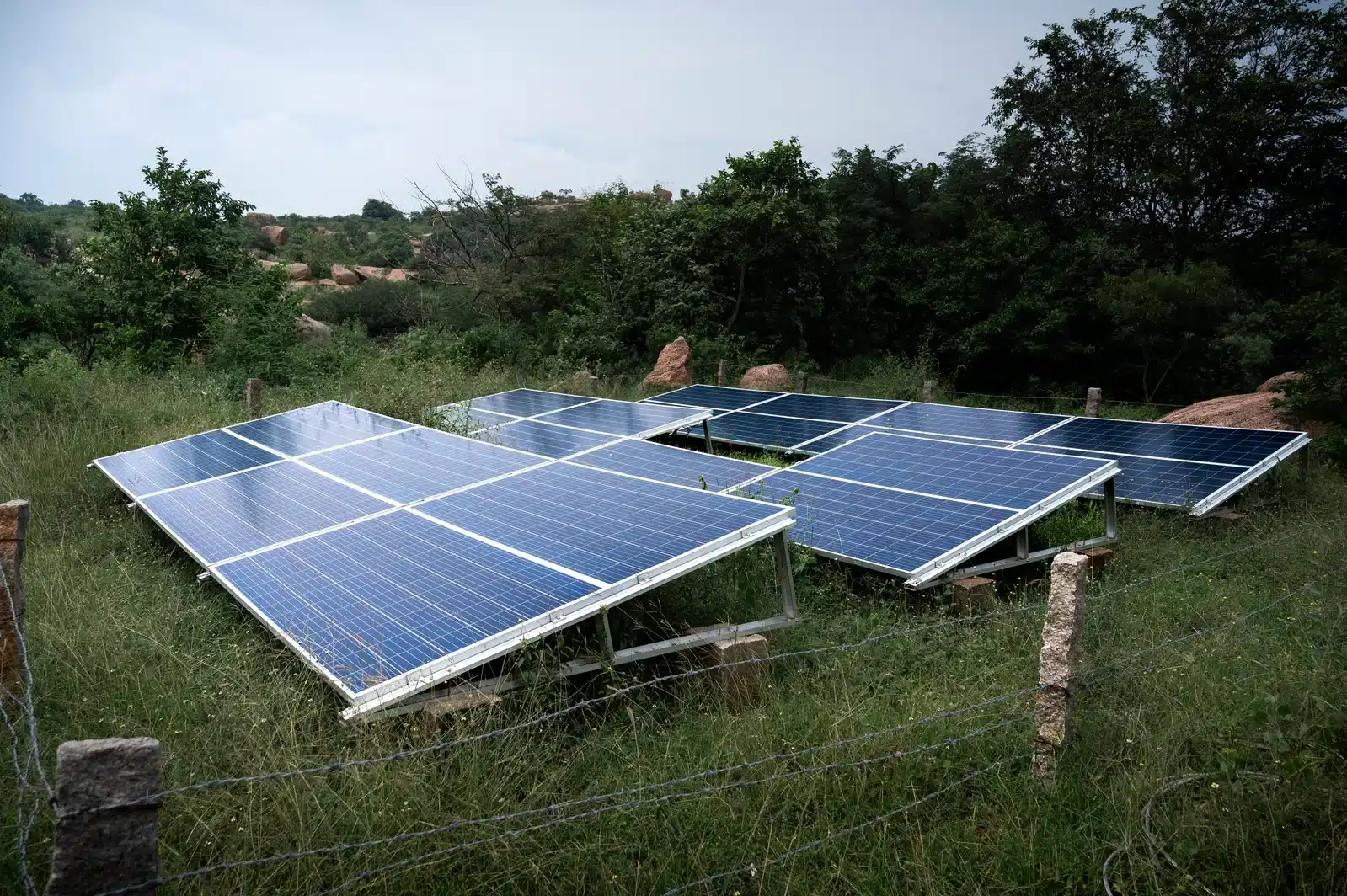
Power Security
Our commitment to self-sufficiency extends to power. By integrating renewable energy sources and sustainable building designs, we aim for an energy landscape that is resilient and eco-friendly. The result is a community where power is reliably generated, distributed, and consumed in harmony with the environment.
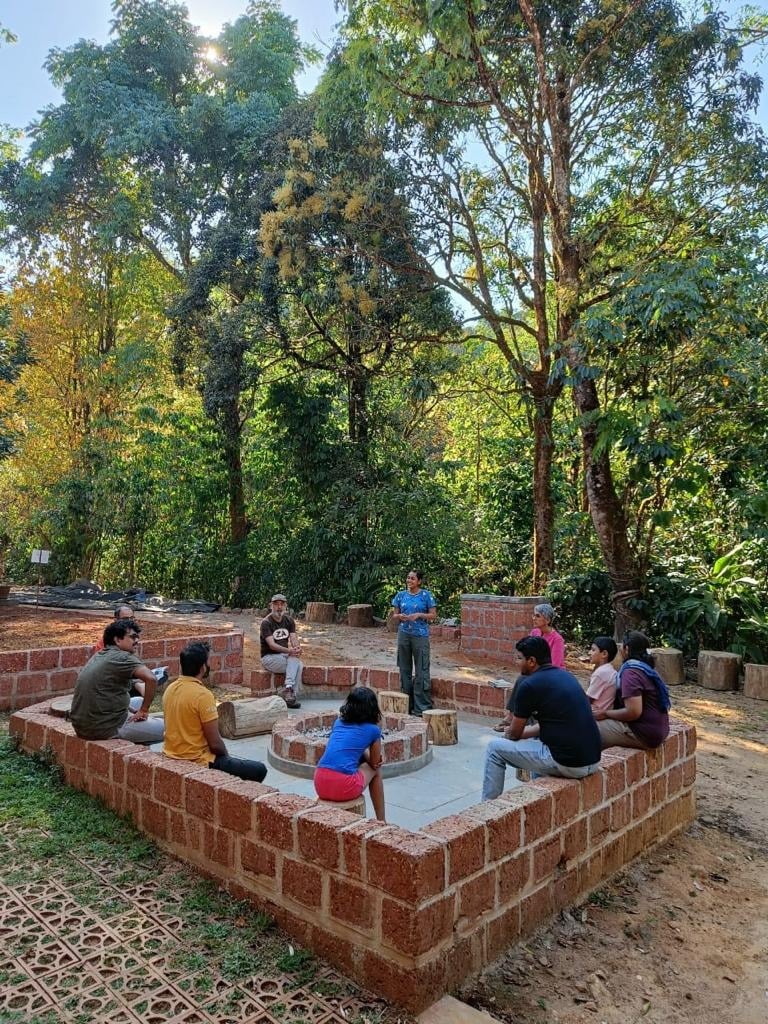
Designing a Landscape, Fostering a Community
The Mumbai Collective is a rural sanctuary that treats its landscape as a unified whole, where each home and every shared space exists in harmony with the larger ecosystem. Here, members aren’t just residents; they’re stewards of a landscape that grows more resilient over time. Designed to encourage a balanced and sustainable way of life, every element—from common lakes to forest patches— contributes to creating an environment where human presence strengthens, rather than weakens, the land.
Our members have access to the estate as a whole, sharing not only the benefits of its diverse amenities but also the responsibility for its care and evolution. Each member’s plot is an integral part of the collective landscape, and all members share the estate’s assets and produce. This model of shared ownership cultivates a deep sense of community, where collaboration and connection thrive.
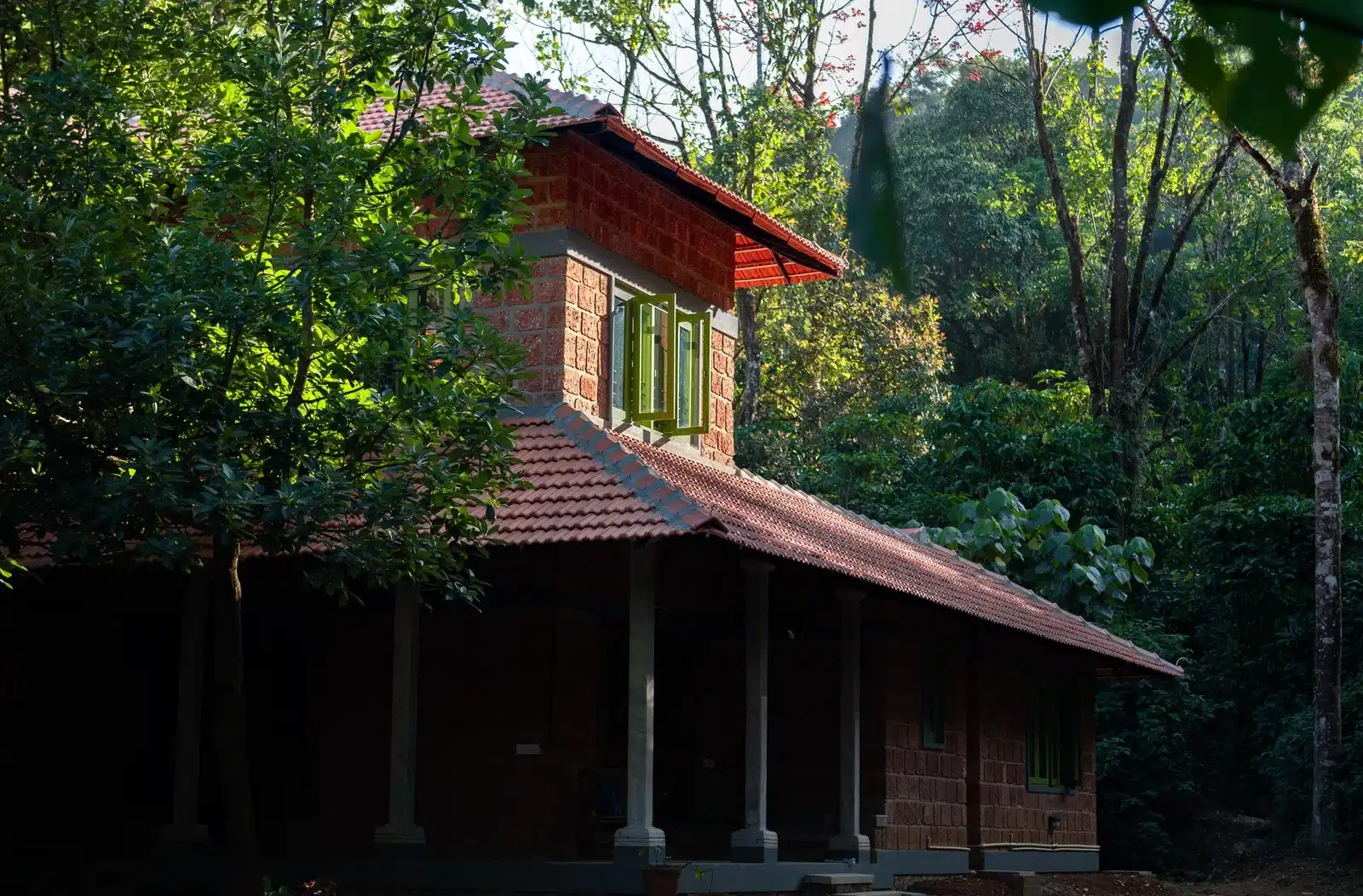
Homes That Reflect The Land’s Story
A home at The Mumbai Collective is more than a structure—it’s a reflection of nature’s rhythms, the local culture, and the sustainability ethos we hold dear. Each home is crafted using locally sourced materials, combining timeless design with modern amenities. These homes do more than shelter; they harmonize with the landscape, breathe life into the surroundings, and offer durability and comfort for generations to come. In partnership with Biome Environmental Solutions, our homes are a model of responsible architecture, combining the rich heritage of regional craftsmanship with the strength of natural materials and the wisdom of sustainable design. The architecture embodies our values, providing a balance of tradition, innovation, and environmental consciousness.
The Invitation
A home at The Mumbai Collective is more than a structure—it’s a reflection of nature’s rhythms, the local culture, and the sustainability ethos we hold dear. Each home is crafted using locally sourced materials, combining timeless design with modern amenities. These homes do more than shelter; they harmonize with the landscape, breathe life into the surroundings, and offer durability and comfort for generations to come.
As a member, you’ll have access to every corner of the estate—from hiking trails and camping grounds to serene lakes and abundant food forests. Your membership is more than a property investment; it’s a journey into a lifestyle of responsibility and reconnection with the earth, a fulfilling experience that grows deeper with time.
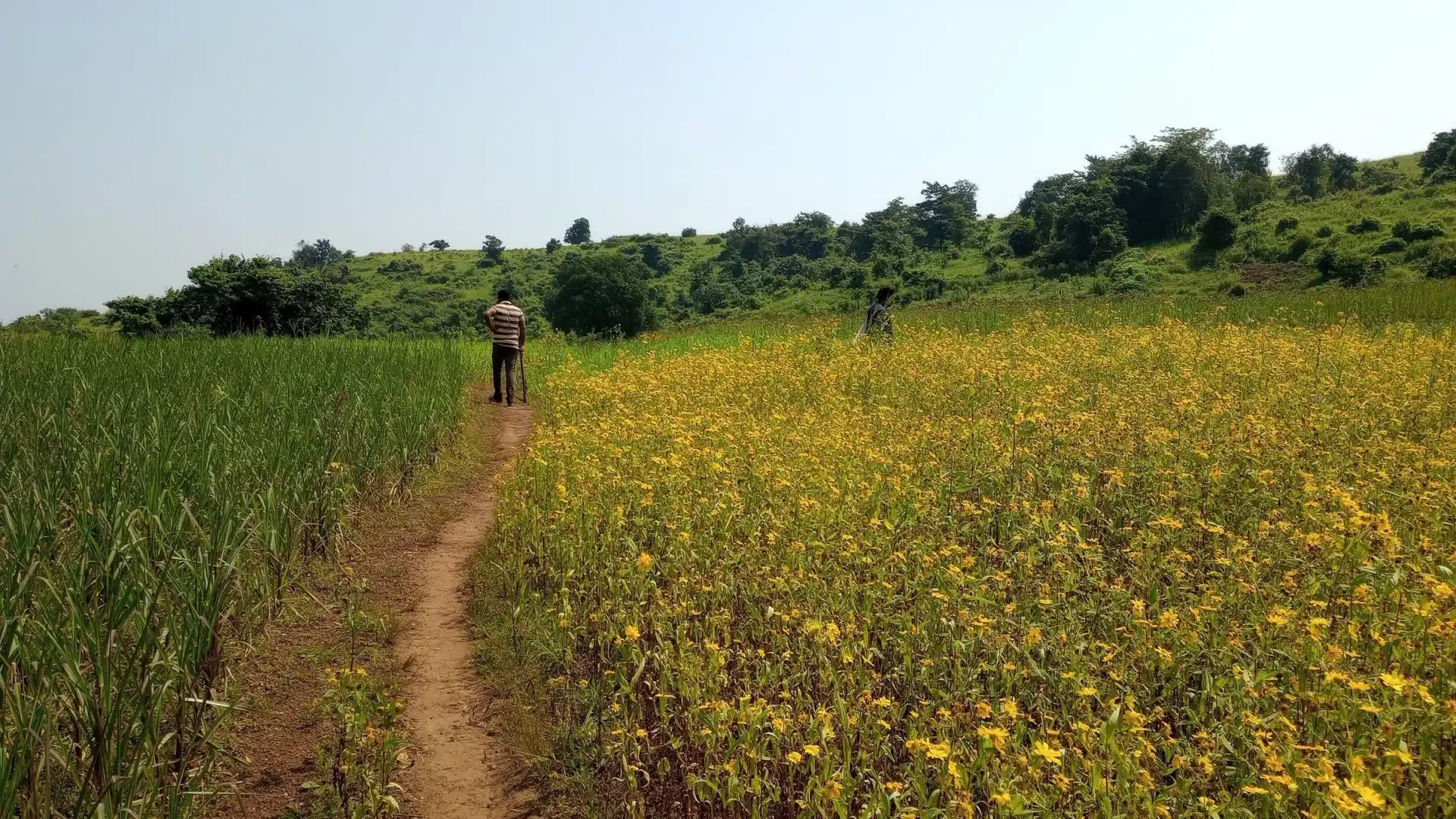
Next Steps? Join The Movement
Explore the Mumbai Collective and take the first step towards a life where sustainability meets community.
